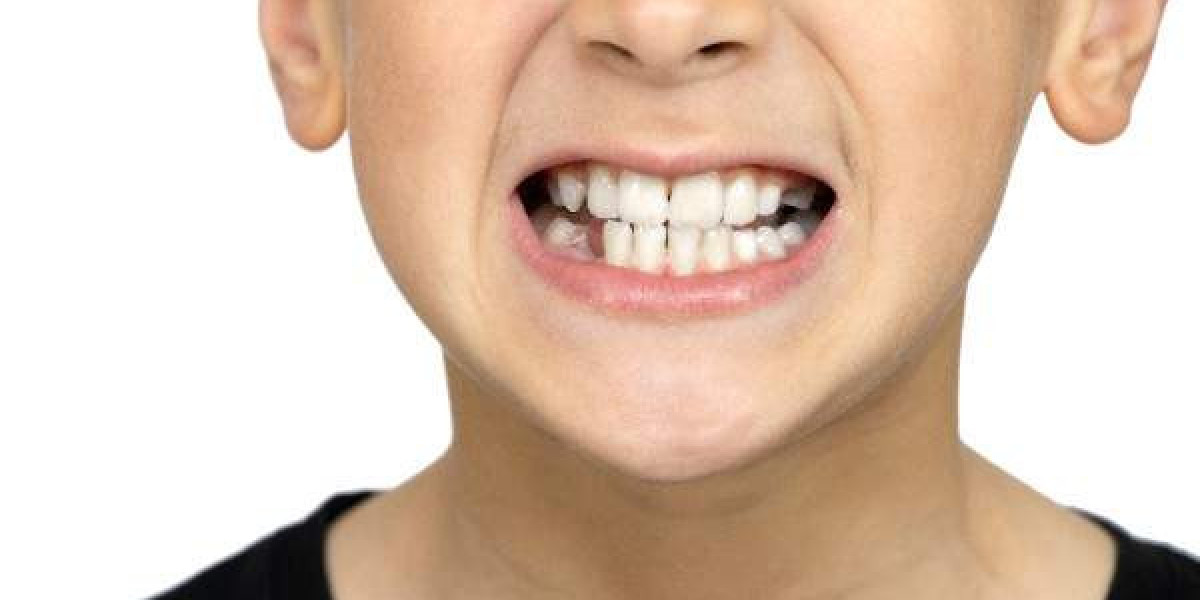Have you ever felt a strange, gritty sensation in your mouth while chewing or suddenly noticed that something doesn’t feel quite right when biting down? While it’s tempting to brush it off as food debris or even a bit of tartar buildup, that gritty feeling could be a warning sign of something more serious a cracked tooth.Cracked teeth are more common than most people realize, especially for adults who grind their teeth, have large fillings, or chew hard substances like ice or hard candy. In this article, we’ll dive into what might cause that gritty sensation, how to identify a cracked tooth, and where to get the help you need if you're in Preston.
Understanding Cracked Teeth
Cracks in teeth can range from minor superficial lines in the enamel to deep fractures that extend into the root. Sometimes, a cracked tooth causes intense pain, while other times, it may present only mild symptoms like sensitivity or an odd texture when chewing. That’s what makes them tricky they often go unnoticed until the problem worsens.
Common Types of Tooth Cracks:
- Craze Lines: These are tiny cracks in the enamel and are usually harmless.
- Fractured Cusp: Often occurs around fillings; it might not affect the pulp but can lead to sensitivity.
- Cracked Tooth: This type of crack runs from the chewing surface vertically toward the root. It can worsen over time and potentially require a root canal.
- Split Tooth: This is a severe crack that splits the tooth into two segments. Extraction may be necessary.
- Vertical Root Fracture: Begins in the root and extends toward the chewing surface. It’s often detected only after infection sets in.
What Causes a Cracked Tooth?
While accidents like biting into a hard object or facial trauma are obvious culprits, many cracked teeth happen over time. Here are a few contributing factors:
- Bruxism (Teeth Grinding): Unconscious grinding or clenching, especially during sleep, can gradually wear down and fracture teeth.
- Chewing Hard Foods: Items like ice, popcorn kernels, and hard candies can cause sudden fractures.
- Large Fillings or Root Canals: Teeth that have undergone extensive dental work may be structurally weaker and prone to cracking.
- Age: Most cracked teeth occur in people over 50 due to years of wear and tear.
If you're living in Preston and experiencing persistent tooth discomfort or sensitivity, it's best not to delay seeking care.
Signs You Might Have a Cracked Tooth
Cracked teeth are elusive; symptoms can come and go, which makes self-diagnosis difficult. However, here are common warning signs:
- A gritty or sandy texture when chewing
- Sudden pain when biting down
- Sensitivity to hot, cold, or sweet foods
- Swelling around the affected tooth
- Discomfort that increases with pressure but disappears afterward
If any of these symptoms sound familiar, don’t wait for the problem to get worse. Instead, look into scheduling an appointment with an emergency dentist in Preston. Timely diagnosis can save the tooth and prevent further complications.
Diagnosis and Treatment of a Cracked Tooth
A dentist uses a combination of visual examination, probing, dye tests, X-rays, and bite tests to identify cracks. Sometimes a crack might not even show up on an X-ray, which is why clinical experience and symptom discussion play a crucial role.
Treatment Options Include:
- Bonding: Resin is applied to fill the crack.
- Crown: A dental crown may be placed over the tooth to restore its function and appearance.
- Root Canal: If the crack has affected the pulp (inner tissue), a root canal is necessary to remove the damaged pulp and seal the tooth.
- Extraction: In severe cases, especially with vertical root fractures, removing the tooth may be the only option.
The sooner you visit an emergency dentist, the better your chances of preserving the tooth. Post-treatment care is just as essential to prevent further issues.
Prevention Tips: How to Avoid a Cracked Tooth
While not all cracked teeth are preventable, some habits and lifestyle changes can significantly reduce your risk:
- Avoid chewing hard objects like ice or pens.
- Use a mouthguard if you grind your teeth at night.
- Limit acidic and sugary foods, which weaken enamel.
- Regular dental checkups can catch early signs of stress or wear on teeth.
- Maintain good oral hygiene to keep enamel strong and reduce decay risk.
It’s also wise to book regular appointments with a Hygienist in Preston. Dental hygienists not only clean your teeth but can often spot early warning signs of damage before they become major concerns.
Why Immediate Attention Matters
Delaying dental treatment for a cracked tooth can lead to:
- Infection: Bacteria can enter through the crack and infect the pulp.
- Tooth Loss: Severe cracks may render the tooth unrestorable.
- Spread of Infection: Left untreated, the infection can spread to gums and even into the jawbone.
- Pain and Discomfort: What starts as mild sensitivity can quickly become severe pain, especially when eating or drinking.
Prompt care from an emergency dentist in Preston can not only relieve your discomfort but potentially save your tooth. It’s not just about treating symptoms it’s about preserving your long-term dental health.
How a Dental Hygienist Can Help
While most people think of hygienists as professionals who clean teeth, their role extends far beyond that. A Hygienist in Preston can:
- Identify minor cracks during routine cleaning
- Remove plaque that can aggravate weak spots in teeth
- Advise on proper brushing and flossing techniques
- Recommend fluoride treatments to strengthen enamel
Hygienists serve as the first line of defense in preventive dental care. By attending regular cleanings and listening to their advice, you may prevent small dental issues from becoming emergencies.
When to See an Emergency Dentist
If you’re experiencing a gritty feeling, sharp pain while chewing, or noticeable sensitivity in one area of your mouth, don’t assume it will go away on its own. Cracks can worsen with time, and waiting too long could mean more extensive and costly treatment.
Signs you should seek immediate dental attention include:
- Persistent or severe pain
- Gum swelling or bleeding
- Visible cracks or broken sections of a tooth
- Discoloration in a specific area of a tooth
- Sudden sensitivity that doesn’t improve
You can easily find an emergency dentist in Preston to assess the situation and begin treatment right away.
Conclusion
A cracked tooth can be uncomfortable, disruptive, and if left untreated, a major threat to your oral health. Recognizing early warning signs and seeking prompt care are essential steps toward protecting your smile. Whether it's a sudden pain or a gritty sensation when chewing, don’t hesitate to contact professionals who can help. For residents in Preston, resources like hygienists and emergency dentists are readily available to support your dental wellness. Trust the experienced network of professionals at EDA Group to guide you through your dental care journey.








